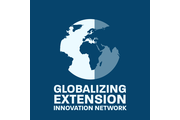Extension has existed for more than a century in the USA. Nearing the end of the 20th century, several programs focused on internationalizing extension (targeting international experiences) or globalizing extension (meaning applying skills learned through international experiences to the educational programs of diverse cultural clientele at home). While many extension professionals contributed their time and talents to such programs, it was not always well documented.
In 2012, the USDA National Institute for Food and Agriculture, Center for International Programs, supported an initiative to document global experience within the Cooperative Extension System. An online survey was developed to create a dataset of self-reported international work or work with immigrant communities in the States. The database grows through respondents listing their colleagues with whom they have worked on programs who are then invited to complete a profile as well. The database can be used to seek individuals who have experience in a particular country. It allows for network analysis to see how extension programs, individuals, countries, and cultures intersect.
The Cooperative Extension System Cultural Connections and International Experience summary highlights 6 years of reporting. A total of 489 respondents shared their experience. The dataset lists 106 public and land-grant universities from which the educators work. Extension Educators have worked with 90 different recent immigrant cultural groups. Extension Educators have worked in 158 countries around the world. Among the respondents, 272 report they speak another language with 50 different languages identified.
To read more, the attached summary document highlights the recent contributions of extension educators to global work. If you wish to submit your contribution to globalizing extension by completing the survey, send an email to gnetwork@umn.edu.

Comments (11)